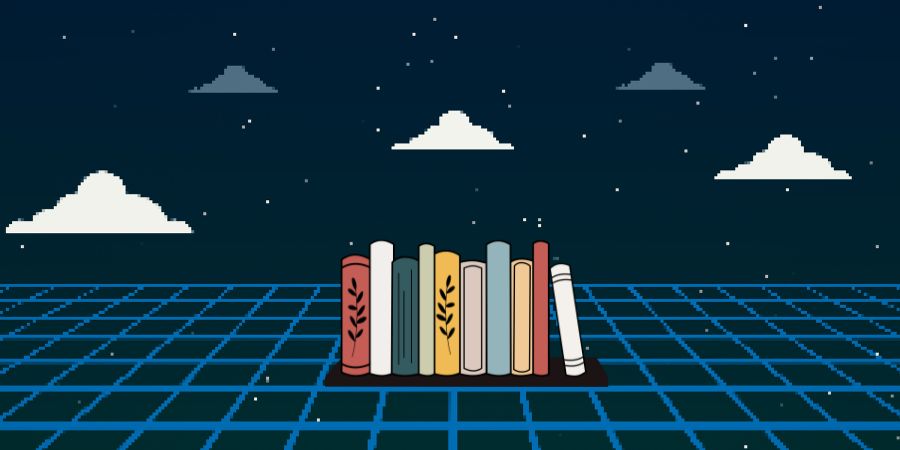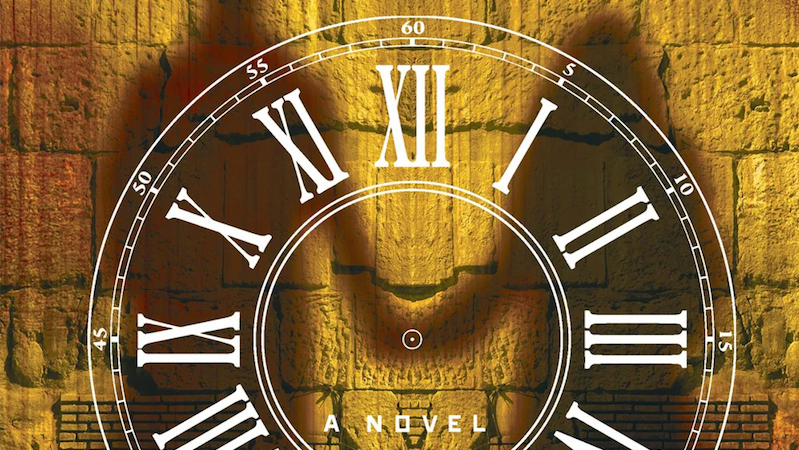In Praise of Print: Why Reading Remains Essential in an Era of Epistemological Collapse
赞美印刷:为什么阅读在认识论崩溃时代仍然至关重要
Ed Simon on What Sven Birkerts Got Right in “The Guttenberg Elegies”
When the witty and wry English fantasy novelist Terry Pratchett interviewed Bill Gates for GQ in 1995, only 39% of Americans had access to a home computer. According to the Pew Research Center, the number who were connected to the internet was a paltry 14%. At the dawn of the internet age, when optimistic bromides about the information superhighway to the 21st century were replete in politics and culture, the author of the “Discworld” series was less sanguine.
当风趣而讽刺的英国奇幻小说家特里·普拉切特在 1995 年为《GQ》杂志采访比尔·盖茨时,只有 39%的美国人可以接触到家用电脑。根据皮尤研究中心的数据,当时连接互联网的人数仅为可怜的 14%。在互联网时代的黎明,当政治和文化中充斥着关于信息高速公路通往 21 世纪的乐观陈词时,这位《环球世界》系列的作者并不那么乐观。
文章继续在广告之后
While talking to the CEO of Microsoft, Pratchett asked what would happen if a writer disseminated on the internet something atrocious and libelous, say a pseudo-academic work of Holocaust denial. “There’s a kind of parity of esteem of information on the net,” said Pratchett, “there’s no way of finding out whether this stuff has any bottom to it or whether someone has just made it up.” Predictably, Gates denied the threat of any sort of epistemological collapse. Without offering any mechanism for doing so, the billionaire told the author that “you will have authorities on the net… The whole way that you can check somebody’s reputation will be so much more sophisticated.” Google was three years into the future—Facebook would be founded in nine years—Twitter in eleven. If Pratchett seemed sardonic and cynical in 1995, then Gates’ pollyannish, Panglossian exuberance appears positively psychotic three decades later.
在与微软首席执行官交谈时,普拉切特问,如果一位作家在互联网上传播了一些可怕和诽谤性的东西,比如否认大屠杀的伪学术作品,会发生什么。“在网络上,信息有一种平等的尊重,”普拉切特说,“没有办法找出这些东西到底有没有根据,或者是有人编造的。” 预料之中,盖茨否认了任何形式的认识论崩溃威胁。 在没有提供任何机制的情况下,这位亿万富翁告诉作者,“你将在网络上找到权威...你可以检查某人的声誉的方式将会更加复杂。” 谷歌已经进入了未来的三年——脸书将在九年后成立——推特将在十一年后成立。 如果普拉切特在 1995 年显得讽刺和愤世嫉俗,那么盖茨的乐天派、潘格洛斯式的狂喜在三十年后看起来绝对是疯狂的。
牺牲的不是最朴素意义上的阅读,而是某种类型阅读的特定体验。
Pratchett’s warning may have been lonely during that distant age of unbridled tech-enthusiasm, but he wasn’t the only Cassandra warning about reality through a smartphone screen darkly. Astrophysicist Carl Sagan predicted in his 1995 The Demon-Haunted World: Science as a Candle in the Dark that “when awesome technological powers are in the hands of the very few… [and] when the people have lost their ability to set their own agendas or knowledgeably question those in authority” the nation would “slide, almost without noticing, back into superstition and darkness.”
普拉切特的警告可能在那个遥远的无拘无束的科技热情时代显得有些孤独,但他并不是唯一一个透过智能手机屏幕暗暗警告现实的卡桑德拉。天体物理学家卡尔·萨根在他 1995 年的《被恶魔缠身的世界:科学如同黑暗中的蜡烛》中预言:“当令人敬畏的技术力量掌握在极少数人手中时... [而且] 当人们失去了设定自己议程或有知识地质疑当权者的能力” 时,这个国家将“几乎察觉不到地滑入迷信和黑暗之中。”
For many readers in the previous century’s last decade, after the vanquishing of Soviet communism and the seemingly never-ending ascendancy of the American experiment, the arc of the moral universe had turned in part because of the supposedly liberatory power of technology. What Pratchett and Sagan prophesized, however, was a coming tumultuousness, not an end of history but rather the demise of truth. Less of a computer revolution than a computer apocalypse.
在上个世纪最后一个十年里,对许多读者来说,在苏联共产主义被征服、美国实验似乎永不停止的崛起之后,道德宇宙的弧线转变部分是因为技术的解放力量。然而,普拉切特和萨根所预言的是即将到来的动荡,而不是历史的终结,而是真理的消亡。这不是计算机革命,而是计算机启示录。
Before Pratchett or Sagan—before social media and the smart phone, bot farms and artificial intelligence—there was Sven Birkerts’s damning The Gutenberg Elegies: The Fate of Reading in an Electronic Age. Released thirty years ago on December 1, Birkerts challenged the coming digital transformation when it was still a gleam in the eye of men like Gates (and long before Zuckerberg or Musk). As a manifesto, The Gutenberg Elegies was in opposition to the prevailing utopianism of the ‘90s, seeing in the denigration of physical books an irreparable harm.
在普拉切特(Pratchett)或萨根(Sagan)之前,在社交媒体和智能手机之前,在机器人农场和人工智能之前,有斯文·伯克特(Sven Birkerts)那篇致命的《古腾堡挽歌:电子时代阅读的命运》。三十年前的 12 月 1 日发布,伯克特挑战了即将到来的数字转型,当时它仍然只是盖茨等人眼中的一个闪光点(远在扎克伯格或马斯克之前)。作为一项宣言,《古腾堡挽歌》反对了 90 年代盛行的乌托邦主义,认为对实体书籍的贬低造成了无法弥补的伤害。
In the author’s estimation, the ceding of material books to the ephemeral gauze of the online posed a threat to our attention, to the ability of immersing ourselves within complex narrative or engaging in the almost-transcendent flow of reading. “Everything in contemporary society discourages interiority,” writes Birkerts. “More and more of our exchanges take place via circuits, and in their very nature those interactions are such as to keep us hovering in the virtual now, a place away from ourselves.” If true in 1994, how much more accurate today? As an antidote to the virtual obliteration of the self, Birkerts returns to literature, arguing that in the “slow and meditative possession of a book,” what he calls “deep reading,” we are able to “keep alive the dangerous and exhilarating idea that life is not sequence of lived moments, but a destiny.”
在作者的估计中,将实体书籍让给在线临时纱布构成了对我们注意力的威胁,对于沉浸于复杂叙事或参与几乎超然的阅读流的能力。 "当代社会中的一切都在阻碍内在性," Birkerts 写道。 "我们的交流越来越多地通过电路进行,从其本质上讲,这些互动使我们在虚拟现在中徘徊,远离自己。" 如果 1994 年是真的,那么今天更加准确了多少?作为对自我的虚拟抹杀的解药,Birkerts 回归文学,主张在书籍的“缓慢和沉思式占有”中,他所称的“深度阅读”,我们能够“保持生命不是一系列生活时刻,而是一个命运”的危险而令人振奋的想法。
Many critics disparaged Birkerts as a fussy Luddite. The anonymous reviewer at Kirkus denounced Birkerts as an “inveterate bookworm,” a “curmudgeon” who offered a “simplistic and unconvincing jeremiad.” Wen Stephenson at the Chicago Review claimed that the medium is not the message, describing how he experienced no difference in parsing Seamus Heaney on the page as opposed to the screen, asking “does it matter that it is transmitted to me, voice and word, through a computer? …the question is beginning to bore me by now.” Dean Blobaum of the University of Chicago Press castigated how The Gutenberg Elegies makes electronic media the “whipping boy for the ills of western society,” claiming that Birkerts’ argument is too all-encompassing, blaming computers for the “Decline in education, literacy, and literate culture.” Here’s the thing some thirty years later, however—Birkerts was right.
许多评论家将 Birkerts 贬低为一个过分挑剔的卢德。Kirkus 的匿名评论者谴责 Birkerts 是一个“积习的书呆子”,一个“脾气暴躁的人”,提出了一个“简单而不令人信服的哀号”。 Wen Stephenson 在《芝加哥评论》声称媒介不是信息,描述了他在纸张上阅读 Seamus Heaney 与在屏幕上没有任何区别的经历,问道“它通过计算机传递给我的,声音和文字,这重要吗?...这个问题现在开始让我感到厌烦。”芝加哥大学出版社的 Dean Blobaum 谴责《古腾堡挽歌》如何将电子媒体作为“西方社会问题的替罪羊”,声称 Birkerts 的论点过于笼统,将计算机归咎于“教育、文化和文学文化的衰落”。然而,三十年后的事实是,Birkerts 是正确的。
Central to the negative reviews was a misunderstanding of just how different information hashed through the internet would be when compared with the physical codex, that venerable two-millennia old technology. The Kirkus reviewer, for example, imagines a straw-Birkets at various hinge moments in the past, who inveighs against the “ballpoint, the typewriter, the printing press.” What this critique misses are that those were technologies of production, but the internet is also a technology of reception. The frenetic, interconnected, hypertext-permeated universe of digital reading is categorically a different experience. Even more importantly, a physical book on a shelf is a cosmos unto-itself, while that dimension of interiority and introspection—of privacy—is obscured in the virtual domain.
负面评论的核心是对互联网传播的信息与传统书籍之间差异的误解,这种误解是基于对那种有着两千年历史的古老技术的理解。例如,柯克斯的评论员想象过去的一些关键时刻会有一个反对“圆珠笔、打字机、印刷机”的斯特劳-伯克特斯。这种批评忽略了这些技术是生产技术,而互联网也是一种接收技术。数字阅读的狂热、互联、超文本渗透的宇宙绝对是一种不同的体验。更重要的是,书架上的实体书籍是一个独立的宇宙,而虚拟领域中那种内在性和反思的维度——隐私——被掩盖了。
“If anything has changed about my reading over the years, it is that I value the state a book puts me in more than I value the specific contents,” argued Birkerts, and perhaps that seemed precious three decades ago, but it strikes me as invaluable today. After all, reading itself remains literally central to our existence, maybe more so now than at anytime in history. Our digital lives are mediated through words, whether the tumult of Twitter or the doom-scrolling of Reddit, the ever-present ping of texts and the flux of Facebook. Yet this is an estimably different experience than the immersion in Wuthering Heights or Moby-Dick, Mrs. Dalloway and Ulysses. What’s been sacrificed is not reading in the most prosaic sense, but the particular experience of a certain type of reading, perilously endangered among all of us attracted to the alluring siren-call of the smartphone ping.
“如果多年来我的阅读有所改变,那就是我更重视书籍让我进入的状态,而不是特定内容,” Birkerts 争辩道,也许三十年前这似乎很珍贵,但在今天,我觉得它是无价的。毕竟,阅读本身在我们的存在中仍然是至关重要的,也许比历史上任何时候都更重要。我们的数字生活是通过文字来中介的,无论是 Twitter 的喧嚣还是 Reddit 的末日滚动,还是短信的不断响起和 Facebook 的变迁。然而,这与沉浸在《呼啸山庄》或《白鲸》、《达洛维夫人》和《尤利西斯》中的体验大不相同。牺牲的不是最平淡的阅读意义,而是某种类型阅读的特定体验,这在我们所有被智能手机短信的诱人诱惑所吸引的人中是极度危险的。
Readerly “flow” allows for a submersion in another way of being, an expansion of possibilities and consciousness. It would be foolish to make that hackneyed, didactic argument that great literature produces good people—too many Nazis read Goethe and Schiller, after all—but to abandon deep reading is to jettison something intrinsic, precious, and singular. “I read novels to indulge in a concentrated and directed inner activity that parallels—and thereby tunes up, accentuates—my own inner life,” writes Birkerts. As much drawn to the digital void as is anybody else alive right now, I’ve had to focus my attention on reading, to prepare myself for dwelling amidst these strange places called novels, and that conscious dedication of time has made immeasurable difference.
读者式的“流动”允许以另一种存在方式的沉浸,扩展可能性和意识。提出那种陈词滥调、说教式的论点,即优秀的文学作品会培养出好人来,这是愚蠢的——毕竟,太多纳粹分子读过歌德和席勒——但放弃深度阅读意味着放弃某种内在、珍贵且独特的东西。“我读小说是为了沉浸在一种集中而有目的的内在活动中,这种活动与我的内心生活相呼应,从而调整、强化我的内心生活,” Birkerts 写道。像任何其他活着的人一样,我同样被数字虚空所吸引,我不得不集中注意力阅读,为了准备自己在这些被称为小说的奇特地方中居住,而这种有意识的时间投入产生了不可估量的影响。
Without that dedication—which is simply exercised desire—I’d have not recently ambled through the centuries-old haunted house that is the main character in Daniel Mason’s North Woods nor would I have been dizzied to be in the unreliable consciousness of the spy Sadie Smith in Rachel Kushner’s Creation Lake, travelled across the immeasurable expanse of Eurasia in the years after the Great War with Pinto in Aleksander Hemon’s The World and All that it Holds, or become familiar with the dozens of very human characters in Andrew O’Hagan’s Caledonian Road, from beleaguered Gen-X art history professors to human trafficked Polish immigrants, British Lords to East London hip-hop artists, a universe in its entirety, contained between two covers of stiff cardboard and eternalized on 624 pages. Books are capable of altering Birkerts’ vaunted interiority, of bending the space-time continuum. As Katya Apekina writes in Mother Doll, another universe I visited this year, “Time does not exist…but it’s interminable.”
没有那种奉献精神——这只是一种被实践的欲望——我就不会最近漫步于丹尼尔·梅森的《北方森林》中的主人公,也不会陷入瑞秋·库什纳的《创世湖》中间谍萨迪·史密斯不可靠的意识中,也不会在亚历山大·赫蒙的《世界及其所有》中跟随平托穿越大战后的欧亚无垠之地,或者熟悉安德鲁·奥哈根的《卡尔多尼亚路》中数十个极具人性的角色,从备受困扰的 X 世代艺术史教授到被贩卖的波兰移民,从英国贵族到东伦敦嘻哈艺人,这是一个完整的宇宙,被封面之间的坚硬硬纸板上永恒地铭刻在 624 页上。书籍有能力改变伯克特斯的令人崇敬的内在性,扭曲时空。正如卡特亚·阿佩基娜在《母亲娃娃》中所写的,另一个我今年访问的宇宙,“时间不存在...但它是无尽的。”
一本印刷的书是一种有着纸肉和墨血的活生物,因此与翻页相比,单纯滚动是贫血的。
Birkerts isn’t necessarily a print mystic, but I am. Mine is an estimably materialist variety of mysticism though, for meaning is the ghost within the machine of the book. Appropriate that Gutenberg, that German gold-miner by training, was inspired to create the matrix of movable print after seeing a similar mechanism used to press grapes into wine, both contraptions intended to distill spirits of-a-sort. The ephemerality of the internet is attractive to entropy, for how much of what’s been written over the past few decades has all but vanished, our prodigious output a daily burning of the Library of Alexandria, while stone, papyrus, vellum, and paper can endure for centuries. A printed book is a living animal with flesh of paper and ink of blood, so that compared to turning pages, mere scrolling is anemic.
Birkerts 并不一定是一个印刷神秘主义者,但我是。我的神秘主义类型是一种值得尊敬的唯物主义,因为意义是书中机器内的幽灵。适当的是,古腾堡,这位德国金矿工出身的人,受到启发创造了可移动印刷的矩阵,之前他看到一个类似的机制被用来压榨葡萄酿酒,这两种装置都旨在提炼某种程度的精神。互联网的瞬息之间吸引了熵,因为过去几十年中所写的文字有多少已经几乎消失,我们的巨大产出每天都在烧毁亚历山大图书馆,而石头、纸莎草、牛皮纸和纸张可以保存几个世纪。一本印刷书是一只有着纸质肉体和墨水血液的活生物,因此与翻页相比,简单的滚动是贫血的。
The internet is, regardless of the encomiums of its most fervent supporters, also a physical realm. Despite being composed of silicon and copper, soldering and circuit boards, the internet is still described as an ethereal, disembodied, spiritual realm. This fallacy has been present for nearly a third-of-a-century and embraced with disturbing zealousness by Silicon Valley’s most cracked digital occultists. But mere affectation doesn’t draw me to the book, but that it’s superior at what it does. The codex on which the architecture of the book is still defined remains an essential technology.
互联网是一个物理领域,尽管它的最狂热支持者赞美不已,但它也是一个物理领域。尽管由硅和铜、焊接和电路板组成,互联网仍被描述为一个虚幻的、无形的、精神的领域。这种谬误已经存在了将近三分之一世纪,并且被硅谷最疯狂的数字神秘主义者们拥抱得异常热情。但仅仅是虚伪并不能吸引我去读这本书,而是因为它在所做的事情上更为出色。书的架构仍然是一个基本技术。
Irene Vallelejo in Papyrus: The Invention of Books in the Ancient World quips that the codex is the rare device that a time traveling classical Roman would recognize, the book included alongside shovels and axes in basically appearing the same over the centuries. What makes the book perfect, and thus not in need of change, isn’t its appearance (they can be both beautiful and ugly), their price (they’re both expensive and cheap), or their sturdiness (some last forever, others not so much), but rather their ability to disconnect. That is the source of the interiority that Birkerts describes, that books are not mired in the cacophony of the internet.
Irene Vallelejo 在《Papyrus: 古代世界的书籍发明》中说,手抄本是一种罕见的设备,古典罗马人会认识到的,这本书与铁锹和斧头一起出现,基本上在几个世纪里看起来一样。使书籍完美的原因,因此不需要改变的原因,不在于它们的外观(它们既可以美丽又可以丑陋),它们的价格(它们既昂贵又便宜),或者它们的坚固程度(有些能持久,有些则不然),而在于它们的“断开”能力。这是 Birkerts 描述的内在性的源泉,即书籍不会陷入互联网的喧嚣中。
Among the most poignant scenes in contemporary literature, ever pertinent today, is Winston Smith in George Orwell’s Nineteen Eighty-Four cradling his paper diary out of view of the panopticon of his telescreen and privately writing down his opinions. Except the telescreen isn’t all-seeing, it’s downright primitive compared to contemporary surveillance capitalism, where Big Brother doesn’t eavesdrop but Alexa does. By contrast, printed books are a zone of resistance against the neon god of the algorithm since tinkering with code can’t delete their contents, as hackers recently did with the Internet Archive. There is a safety to books, where Smith is able to enter the private realm of literature simply by sitting a bit off camera. That’s a freedom which, I fear, will become increasingly rare.
在当代文学中最动人的场景之一,至今仍然相关的是乔治·奥威尔的《1984 年》中温斯顿·史密斯将他的纸质日记抱在怀中,远离他的电视屏幕的全视之眼,私下记录下他的观点。除了电视屏幕并非无所不见,与当代监控资本主义相比,它实在是原始的,大哥不偷听,但 Alexa 却做到了。相比之下,印刷书籍是对抗算法之神的一片抵抗区,因为篡改代码无法删除它们的内容,就像黑客最近对互联网档案馆所做的那样。书籍是安全的地方,史密斯可以通过简单地坐在镜头之外的地方进入文学的私人领域。我担心,这种自由将变得越来越稀有。
When we speak of twentieth-century totalitarianism we often due so with a sense of naivety, as if the worst of the past was safely ensconced there, mistaking technological progress with liberty. Now, consider what the Nazis were able to do with flimsy IBM punch cards, and the difference today, the sheer amount of data concerning all of us, saved on servers owned by the very people now enabling authoritarianism. “If literature is to survive,” wrote Birkerts, “it must become dangerous”—it increasingly is. More importantly, if we’re to survive, then we must become literate, again.
当我们谈论二十世纪的极权主义时,我们经常带着一种天真的感觉,好像过去的最糟糕的部分安全地藏在那里,将技术进步误认为自由。现在,请考虑纳粹如何利用脆弱的 IBM 穿孔卡,以及今天的差异,关于我们所有人的大量数据,保存在现在正在推动威权主义的人拥有的服务器上。“如果文学要生存下去,”Birkerts 写道,“它必须变得危险” — 它越来越危险。更重要的是,如果我们要生存下去,那么我们必须再次变得有文化。




















